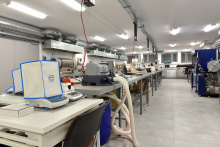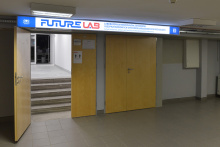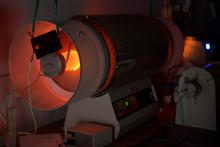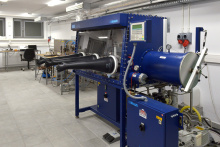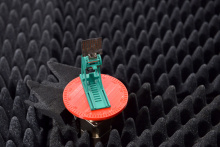Date added: 2020-07-14
FutureLAB. The new laboratory of GUT for the development of electronic technologies
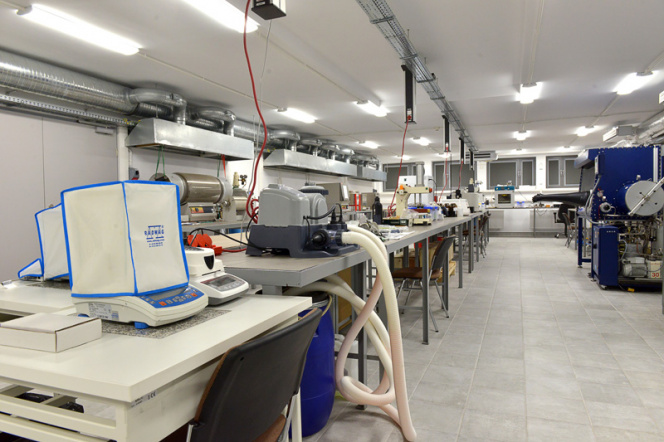
FutureLAB is a laboratory of new materials, sensors and wireless systems at Gdańsk University of Technology. It will enable technologically advanced research in the field of materials engineering with advanced electronics and technologies for future generation (5G) wireless communication. It will also combine the competences and skills of scientists from several faculty departments and two research centers, established under the program of the Ministry of Science and Higher Education ‘Initiative of Excellence - Research University’ (Center of Digital Technologies and Center of Materials of the Future).
The idea of a joint laboratory combining research from several areas will significantly increase the attractiveness of the university as a partner in prestigious scientific and research and development projects, including international projects involving well-known foreign companies. The name of the new laboratory is to indicate a modern and future-oriented direction of research.
– FutureLAB is a place where we managed to collect a set of modern research equipment, which will be used by scientists and doctoral students of our faculty - says prof. Jerzy Wtorek, dean of the ETI faculty and one of the originators of the creation of the laboratory. - This is a large investment in the development of our research potential. Thanks to FutureLAB, the faculty's recognition will increase, which will translate into innovative projects in new research areas and valuable scientific publications.
Equipment for over PLN 5 million
The adaptation and renovation works necessary to launch the laboratory cost the faculty approximately PLN 750 thousand. This allowed the complete transformation of the former faculty canteen into an innovative research laboratory.
The cost of the equipment found in FutureLAB, which was a little over PLN 5 million in total, is a separate issue. This amount includes devices purchased from the faculty's funds, as well as under grants and programs supporting the development of science in Poland (including the Fund for Polish Science, the National Center for Research and Development, the National Center for Science and others), or the H2020 project, which enabled the 5G laboratory to be equipped with apparatus worth PLN 3.7 million.
FutureLAB's space will be primarily used by three research teams from the ETI faculty, conducting work in the field of materials engineering, electronics, embedded systems and wireless communication:
- At FutureLAB the team of prof. Robert Bogdanowicz from the Department of Metrology and Optoelectronics conducts research on the synthesis of new nanodiamond materials and two-dimensional crystals for the needs of fast electrochemical sensors, including pathogens (e.g. influenza, Sars-Cov-2), toxins (e.g. bisphenol) and explosives. The team of prof. Bogdanowicz has been conducting extensive cooperation with national and international research units in this area for many years.
- A team from the Functional Materials Laboratory headed by prof. Piotr Jasiński, conducts research related to the development of new materials and technologies for the preparation of electrochemical, electronic and biomedical devices. In particular, work is underway to develop thin and thick functional layers based on polymer, ceramic and metallic materials that are used in fuel cells, electrolysers, gas separation membranes and gas sensors.
- In turn, the FutureLAB enabled the Department of Microwave and Antenna Engineering to create a modern, separate laboratory in which advanced tests of electronic components (including antenna and integrated circuits) as well as complete wireless communication systems developed for the development of 5G technology will be conducted. The management of the laboratory was taken by prof. Łukasz Kulas and prof. Krzysztof Nyka.
The laboratory equipment also allows for carrying out construction and design works in the field of new reconfigurable antenna arrays for 5G systems, which already aroused interest last year, of such companies as Airbus and Ericsson. It also allowed Gdańsk University of Technology to enter the international research program BEYOND5, among well-known European institutions working on the development of 5G technology. You can read more about the subject [HERE]


